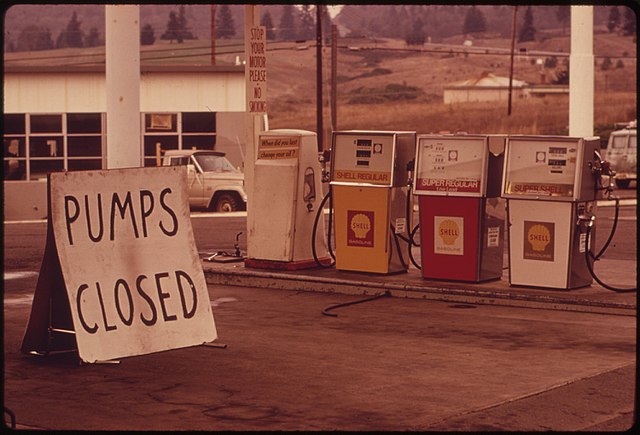Economic sanctions are commercial and financial penalties applied by states or institutions against states, groups, or individuals. Economic sanctions are a form of coercion that attempts to get an actor to change its behavior through disruption in economic exchange. Sanctions can be intended to compel or deterrence.
An undersupplied US gasoline station, closed during the oil embargo in 1973
Deterrence theory refers to the scholarship and practice of how threats of using force by one party can convince another party to refrain from initiating some other course of action. The topic gained increased prominence as a military strategy during the Cold War with regard to the use of nuclear weapons and is related to but distinct from the concept of mutual assured destruction, according to which a full-scale nuclear attack on a power with second-strike capability would devastate both parties. The central problem of deterrence revolves around how to credibly threaten military action or nuclear punishment on the adversary despite its costs to the deterrer. Deterrence in an international relations context is the application of deterrence theory to avoid conflict.

USS Growler, one of two submarines designed to provide a nuclear deterrence using cruise missiles with a 500-mile (800 km) range—placed on patrol by starting to carry the Regulus I missile (shown at Pier 86 in New York, its home as a museum ship)


